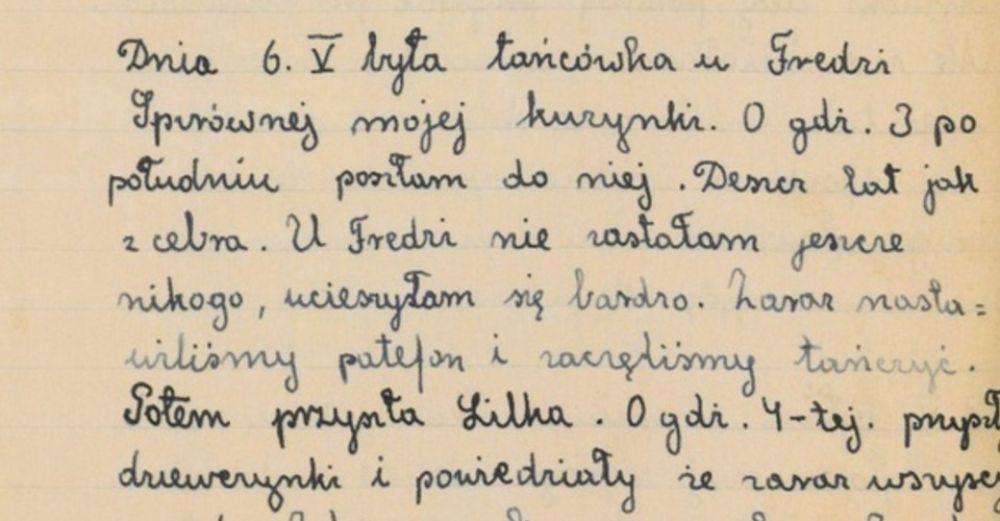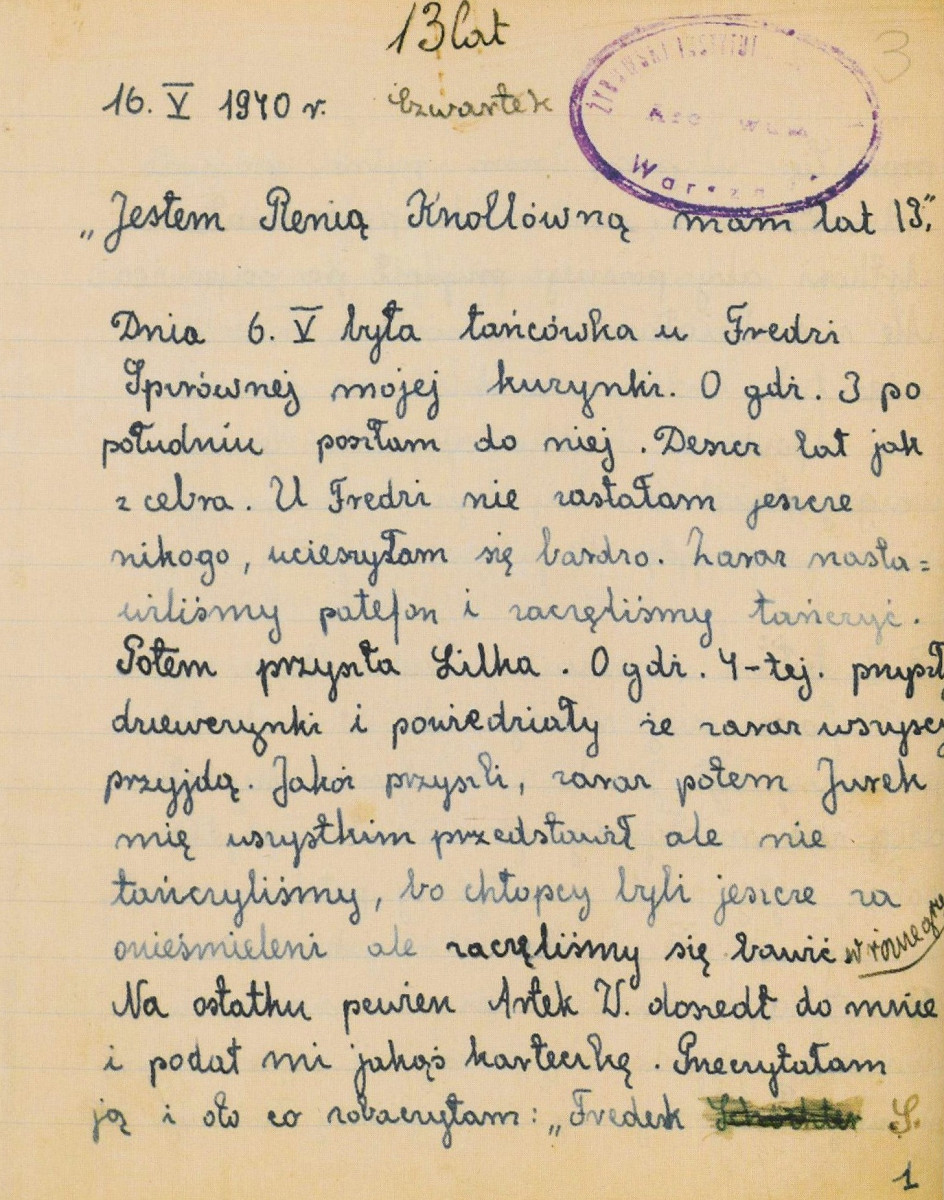- News
- Events
- Oneg Shabbat
- Collections
- Research
- Exhibitions
- Education
- Publishing Department
- Genealogy
- About the Institute
- Bookstore


“The Germans did not care what a Jew was doing in his house. So the Jew took up writing,” wrote Emanuel Ringelblum in January 1943. Not only literates wrote, but also journalists. Notes, sometimes regular diaries, were kept by locked in the ghetto craftsmen, traders, and even adolescents and children.
The need to document the fate that had befallen the Jews, because of Nazi Germany was very strong. Maryla, whose surname is unknown, made daily notes, while hidden in a bunker during the Warsaw Ghetto Uprising. She wrote even though in the shelter there was unbelievable crowd and hunger. From time to time, panic would break among the hiding and she herself was constantly fighting with the thought of committing a suicide. Maryla’s testimony survived even though she herself died in Majdanek. However, most of the diaries did not survive the war having died with their authors. Therefore all of the materials that were saved from destruction are of even bigger value now.
The fragments of the diaries, mostly from JHI’s collections, which we have been publishing for three months on our website and on facebook allow us to learn about the reality of the ghettos. We chose them so that they are not only a grim illustration of atrocities which the Germans committed against the Jews, but also to show daily life behind the wall. Therefore, we read about the difficulties which the residents of the ghetto had to overcome everyday, about the magnitude of the prevailing poverty in the streets, and the horrific mortality rate in shelters for refugees, but we also learn how social self-help and cultural life dynamically organized themselves in the ghetto.
Reality seen through the eyes of the authors of the diaries is not textbook clear. Reading their notes allows, for example, to see how a complex phenomenon smuggling was. On one hand, due to starvation food rations, allocated by the Germans to the inhabitants of the ghetto, powered by smuggling black market was the only chance of survival. In many cases, smuggled food acquired by children allowed to feed entire families.
On the other hand, smuggling corrupted. Smuggling carried out for commercial purposes allowed certain individuals to accumulate considerable amount of wealth in a short time. The new financial elite of the ghetto enjoyed life in expensive cafes, bought clothes and luxurious furniture, which in the presence of the terrible poverty among the Jews locked in the ghetto seemed for part of the diary writers, for example Ringelblum himself, deeply immoral.
The specific perspective of looking at life in the ghetto can be found in the diaries kept by children and adolescents. The records of 13-year-old Renia Knoll from Cracow do not lack observations on the boys who she liked or critical evaluations of their appearance. However, from these seemingly trivial notes, again and again emerge: black reality, fear and a feeling of humiliation. Personal comments by Renia, by not much older than her David Sierakowiak, along with notes of adult women and men expose inhumanity of the times in which they lived, and most of them also died.
We organized the chosen by us fragments so that their dates could correspond with the date of their publications on our website. However, these occupation texts come from various years. Therefore, the chronology of the events is not maintained. However, our aim was not to create a coherent historical narrative, but to show the reader everyday life seen through the eyes of the victims of the Holocaust.
On 9th June, 1942 young Elza Binder wrote, “Actually all this scribbling does not make any sense. The fact is that we’re not going to survive the war. And the history will know about everything without my enlightened information.”
Elza died in mysterious circumstances. What is left of her is her diary, one of many records of the Jewish fate during the Holocaust, which, while being read nowadays, evoke helpless anger and sadness. However, we believe (but also many of you who share your feelings with us) that reading them is important, because it stops our everyday hustle and bustle and turns the thought. Towards sense.
